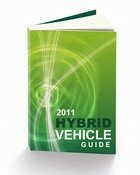Get The Facts | Problems & Disadvantages of Hybrid Cars

Pros and Cons of Hybrid Cars
Part Two: Disadvantages
In the last post, we outlined some of the top advantages of owning a hybrid car. Now, we will look at a few of the disadvantages and potential problems associated with hybrid vehicles.
Get ready for some sticker shock.
One common complaint about hybrid cars is their initial price. According to Cars.com, the Manufacturer Suggested Retail Price (MSRP) for new, 2008 model year hybrids ranges from $21,100 (Toyota Prius) to $104,000 (Lexus LS 600h). Adding all the hybrid technology to a vehicle is expensive, and some of that extra cost is passed on to consumers. As an example, the new Toyota Camry is available in several trim levels ranging from about $20,000 for the LE version to more than $25,000 for the hybrid Camry. The 2008 Honda Civic starts at $15,000 (DX) while the hybrid version will set you back at least $22,600.
So, yes, if you are low on cash right now, the extra cost of going green could be the deal breaker. At the same time, it is important to consider the long-term savings associated with a hybrid when making a buying decision. While the gas-only Camry is getting around 21 miles per gallon in the city, the hybrid version gets about 33 MPG. That could mean that shelling out the extra $5,000 now could save you a bundle in fuel costs over the long-run. Resale value is also better for the hybrid model.
Burning through batteries
Another disadvantage of buying a hybrid are potential problems that could occur with their expensive batteries. Because hybrid technology relies heavily on the electric battery within the car, buyers are often concerned that these types of batteries will need to be replaced more often than would a standard, 12 volt battery.
Fortunately, the nickel metal hydride batteries in hybrid cars charge themselves when the car is not using the electric power supplied by them. By avoiding draining the batteries, studies have shown that these batteries normally last just as long as those of a standard vehicle. Hybrid vehicle manufacturers also include warranties to cover these batteries for 80,000-100,000 miles. You can learn more about the warranties on different hybrid models here.
Is my footprint truly green?
Hybrid vehicle technology is complex and therefore it requires many resources devoted to its production. This means that the factories producing hybrid cars are likely creating just as much, if not more pollution than factories that build non-hybrid vehicles.
On the other hand, the impact of those hybrids once they are on the road is much less than that of standard vehicles, thereby decreasing their overall, negative environmental impact. So, while buying and driving a hybrid does not free you from pollution and CO2 emmissions, it does lessen the negative effects.
Am I safe in a hybrid car?
Two features that allow a hybrid to be so fuel-efficient, the electric technology and lighter weight of the vehicle, are cause for concern for some potential buyers. For example, the high voltage required by a hybrid car’s battery could prove dangerous in a collision if wires are exposed. Also, the light weight of some hybrids may concern potential buyers who fear these types of cars would not fare well in a collision. Check out the safety rating of most hybrid cars here or review hybrid suv safety here.
Other disadvantages, issues, potential problems, and drawbacks to hybrid vehicles include their lack of availability, slower acceleration, brake noise & feel, the fact that some may be “too quiet”, and lack of choice - as most car models are not yet being built as hybrids.




















Comment by Carrie on 27 March 2010:
Thank you for the great information!
It really helped me in understanding what hybrid cars are like and how they might be inefficient.
Comment by Todd Wines on 23 October 2010:
One problem not discussed which I am finding out is not an isolated incident with my 2006 Toyota Highlander Hybrid is the unreal cost of replacing the power inverter when it goes out, between $12,000 and $14,000. This part is not covered after 100,000 miles and the vehicle will not start when this part goes out. The truelly scary thing about this part going out is it went out on me while I was in the fast lane doing 70 mph on a three lane interstate. I lost all power and had a strugle in getting my disabled vehicle to the side of the road. Mark my words somebody will be killed due to an inverter failure. The small amount of money I saved annually on gas is not even close to the money I lost on buying this “green” vehicle. When they said “green” I guess they were meaning a different kind of green.
Comment by Lisa Jarvis on 3 January 2011:
Todd,
I just had the power inverter go out on my 2006 highlander hybrid yesterday! We too were going 80 on an interstate and I had my whole family in the car. Had I known about this huge potential for expense I would never had bought it.